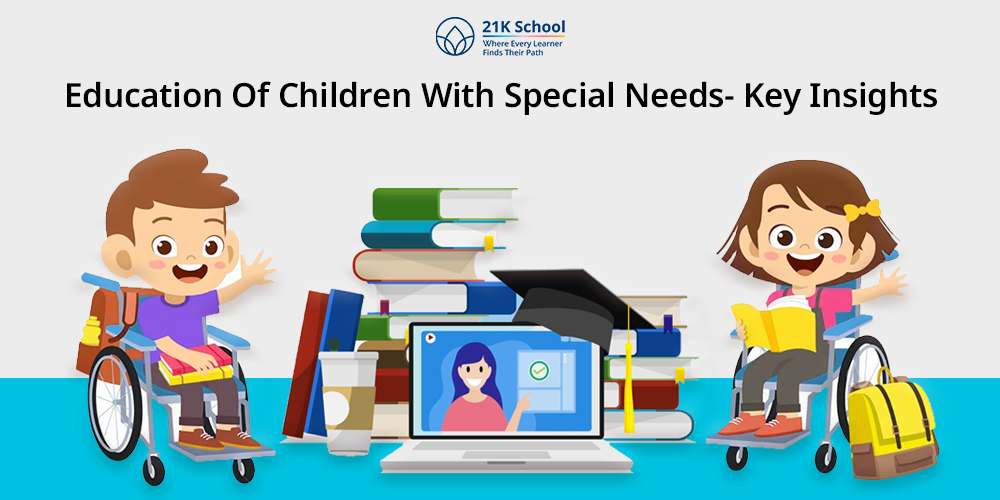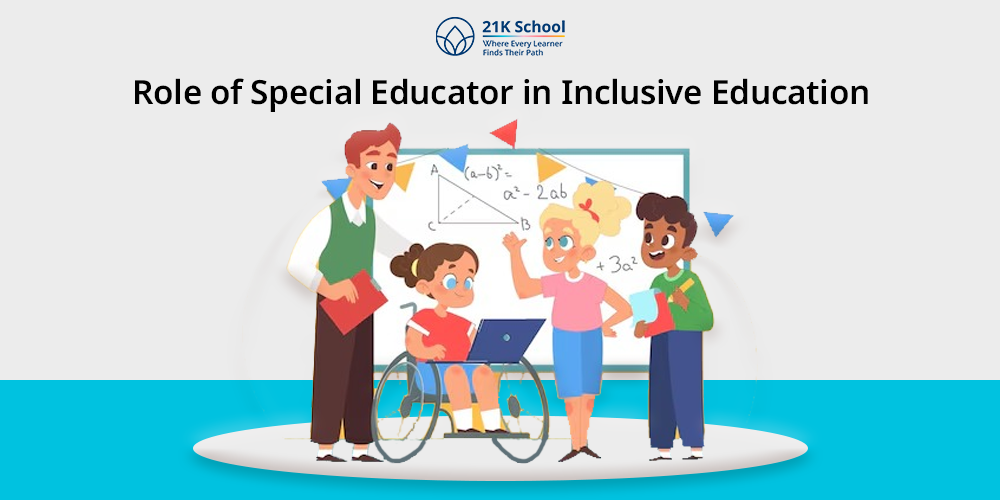
Homeschooling is a journey full of unique experiences.
It is an educational journey that allows parents to tailor their child’s learning experience.
It is a journey to meet the needs and have a unique and creative educational journey however their starting point can be overwhelming without proper guidance and support from the experts in the industry.
Homeschooling for the first time feels like standing in the age of a vast mountain cliff or in an uncharted territory seems interesting yet overwhelming.
This leaves you with a thought to ask yourself: Where do I even begin? How do I make this work for my child and my family?
Home schooling is not about replication of a traditional classroom rather it is about creating a personalized and flexible experience for their students to nurture curiosity and growth in a fun way.
Inorder to know more about homeschooling and its basic features, read the blog If you are a parent exploring this method of learning for your child and have questions, then this blog is for you.
Learn everything you need to know about homeschooling, how it works, how to get started, and more : A Beginner’s Guide to Homeschooling: Getting Started
In a motivated situation where customised education is more desired by families who are willing to build connections and explore alternatives of traditional education.
They help in building strong family connections and help students in guiding and navigating their way through learning.
From setting up space to learning or choosing the right curriculum for children it is about balancing academics with life skills and keeping your child motivated to learn.
Furthermore, this article will be dealing with tips that can help the first time homeschooling students in developing a routine and making their learning journey a success.
Table of Contents
- Getting Started with Homeschooling
- 1. Creating a Homeschooling Plan
- 2. Setting Up a Learning Space
- 3. Establishing a Routine
- 4. Choosing Effective Teaching Methods
- 5. Keeping Children Motivated
- 6. Utilizing Resources and Tools
- 7. Balancing Academics and Life Skills
- 8. Socialization for Homeschooled Kids
- 9. Tracking Progress and Assessments
- 10. Taking Care of Parental Well-Being
- Conclusion
Getting Started with Homeschooling
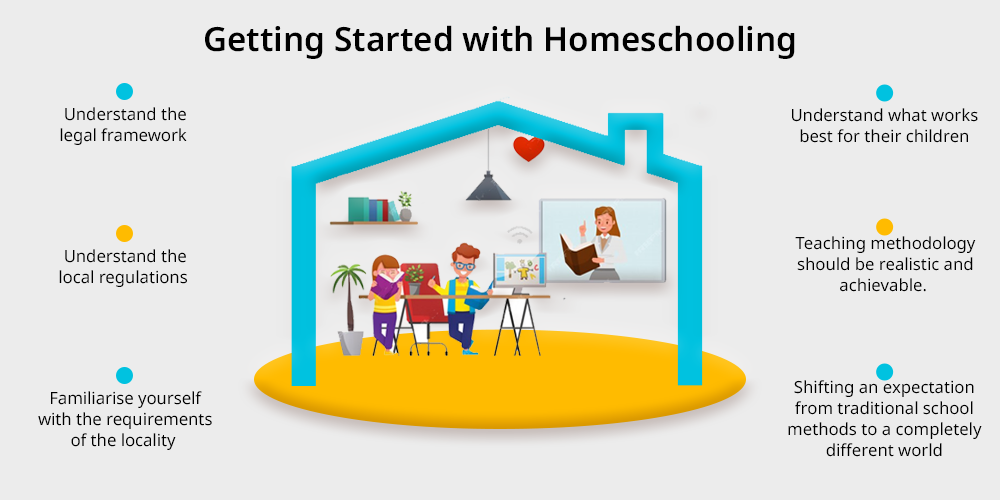
The first step in homeschooling is to understand the legal framework of the education standard in your region.
The homeschooling laws are different across countries and even under states, research regarding the same is very important to understand the local regulations and notify the necessary authorities in case they are involved.
Regulations are important to ensure compliance with registration documentation and all the testing mandats of the learning process.
These steps are taken to familiarise yourself with the requirements of the locality to prevent potential legal issues.
There are many Tips and Tricks for First-time Online Homeschoolers, but it is very important to understand that Starting homeschooling means shifting an expectation from traditional school methods to a completely different world.
In this transitional journey it is very important to understand that experimentation will take time to adjust as the loan and it is important to understand what works best for their children in the course of experimentation.
Home schooling does not have to replicate the traditional classroom setting but it should modernise learning and teach skills and love for learning in its own way and the goals under this teaching methodology should be realistic and achievable.
Parents are suggested to make a proper well designed road map to support the children in the learning journey.
1. Creating a Homeschooling Plan
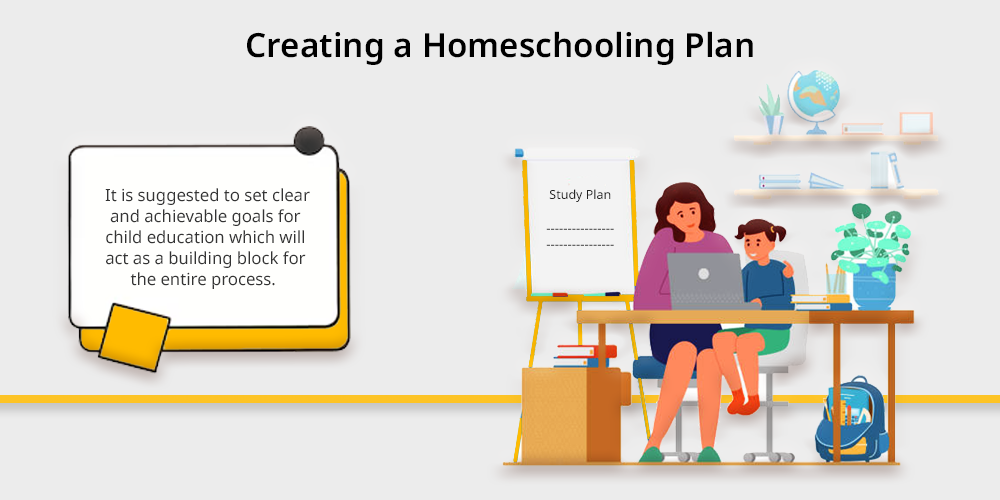
When creating plans for home schooling it is suggested to set clear and achievable goals for child education which will act as a building block for the entire process.
There are certain questions that parents could ask themselves like : What skills and knowledge do I want my child to gain this year?
These questions will help in understanding the objectives that the schooling methodology have in themselves which includes the academic benchmarks personal development or even the creative standards or achievements that their setting for the children.
Choosing the right curriculum takes the most time and energy. There are countless curricula options available for parents to choose from and selecting one that aligns with the child’s learning style and teaching philosophy of parents is very important.
There are programs of flexible modules to customise for different subjects and age groups. Engage where the student is looking for learning opportunities abroad they can select from the courses like CBSE, ICSE, IGCSE, GCSE and even A Levels.
It is important to make informed choices in such cases which can be only made with reviews, forums and exploration. The best sample materials from each curriculum is to be analysed thoroughly before making the decision.
2. Setting Up a Learning Space
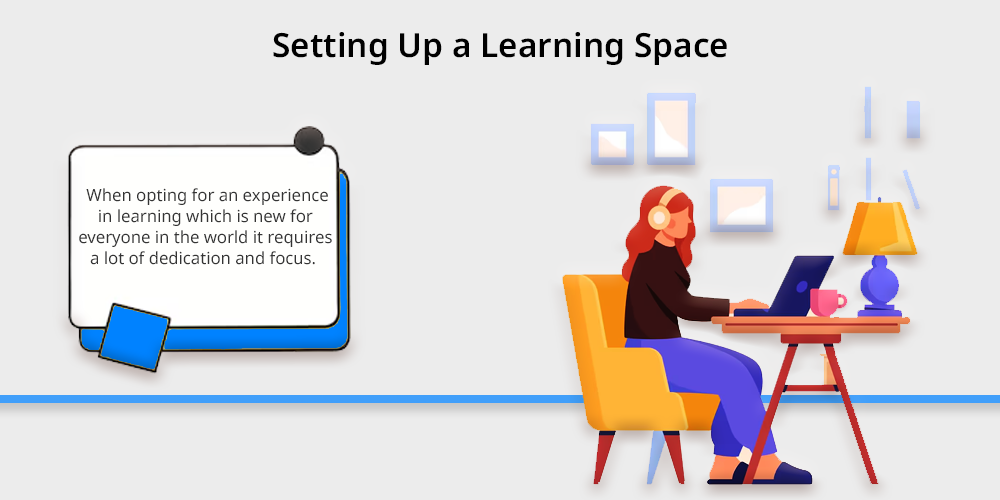
When opting for an experience in learning which is new for everyone in the world it requires a lot of dedication and focus.
Creating a space that is conducive to focus on learning is something that can address the problem of setting up a learning space that is a comfortable and beneficial space from all aspects.
The setup does not necessarily have to be very elaborate; rather it can be a quiet corner with a desk, a comfortable chair and adequate amount of lighting and air to breathe.
A dedicated study area must have all the necessary supplies like book stationery and tech tools within the reach to avoid distraction.
Parents are required to understand that the area dedicated for the study should be comfortable and distraction free, where few things to keep in mind is to choose a location away from all the television and noisy appliances.
Parents can personalise the space for their children with motivational posters, educational charts and child artwork to inspire creativity and enthusiasm in them and make the space comfortable for their learning journey.
3. Establishing a Routine
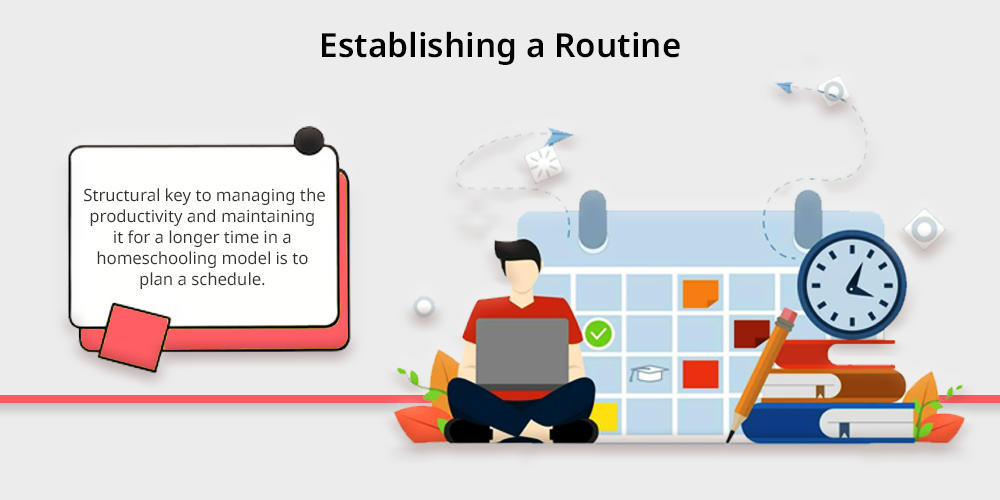
When any for a larger goal, it is important to go step by step where the structural key to managing the productivity and maintaining it for a longer time in a homeschooling model is to plan a schedule.
The Homeschooling environment is very flexible and the routine includes core subjects, extra curricular activities and also gives immense focus on the free time for students to focus on their personal relation and social interactions — it is a perfect blend of everything.
For better understanding of this particular aspect of homeschooling one can also consider reading dedicated blogs that deal with the concern of schedule and provide Tips for Creating a Homeschooling Schedule.
The flexibility in the curriculum ensures adaptability for the unexpected events happening in the family to maintain the consistency and keep the learning continuous.
Children who are starting their journey with the homeschooling pattern are suggested to take regular breaks and intervals in between their schedule to recharge themselves.
It is suggested to incorporate short intervals between and longer breaks for meals and outdoor play during the daytime to balance the mental exercise and prevent burnouts
4. Choosing Effective Teaching Methods
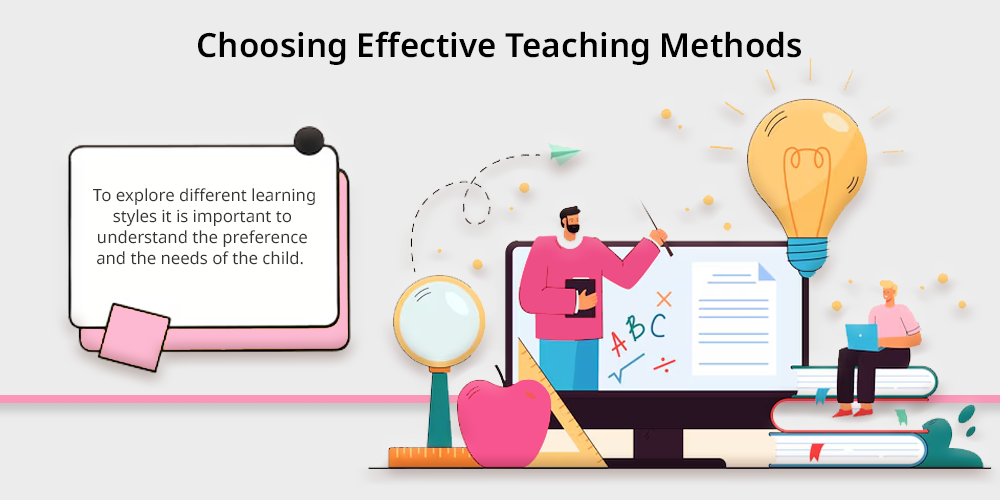
Every child is blessed with different skills and has different learning capabilities.
To explore different learning styles it is important to understand the preference and the needs of the child.
There are three types of learning styles that a child can opt from in a homeschooling setup.
- Visual learning: here in this case the learners basically focus on the videos and the diagrams form of concepts to learn better.
- Auditory learning: under this form of learning style the learner benefits from the discussions happening in the module and the audio books provided to them as a resource.
- Kinesthetic Learning: the form of learning where the learner excels in the learning journey through hands-on activities and experiments.
Learning is well soaked when it is interactive and experiential.
Children’s life to learn in an engaging and dynamic environment where children actually take part in the learning process rather than simply observing these active participation develops a deeper understanding of concepts in them connecting their learning experience to the real world experiment.
Some of the major examples of such teaching methodology could be :
- Science experiments
- Art projects
- Creative activities
- Outdoor exploration
- Life skills
- DIY project
5. Keeping Children Motivated
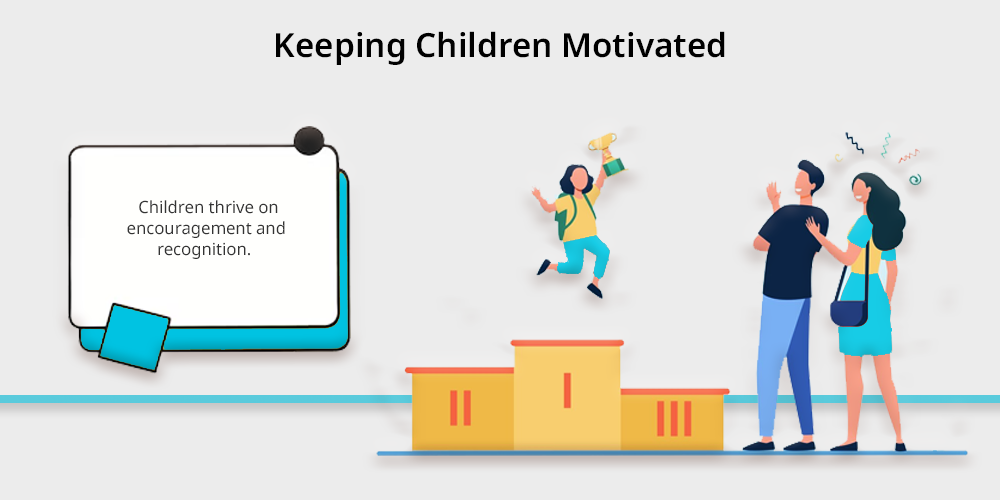
The only way to succeed in a home schooling experience is to keep children excited about their learning journey where in traditional classrooms often the learning process is facilitated by external factors like peer influence and structured environment.
Children thrive on encouragement and recognition. It is important for parents to acknowledge their progress whether it be academic or personal and build a rewarding experience based on that achievement.
It helps children in seeing the worth and the value of their heart work which motivates them to keep pushing forward and overcome the challenges and master new skills with time.
One of the most remarkable advantages of home schooling is flexibility which makes learning enjoyable and can always be tailored to a child’s interest unlike the traditional classroom where students have to stick to rigid methods and incorporate all the standard procedures.
In a homeschooling set up parents can introduce learning in the form of games, creative activities that are inspired from real life to transform “work” into play.
Gamifying lessons inculcate a sense of competition in them which is healthy for their learning to improve focus and make learning feel rewarding for them.
Another powerful way to teach lessons to young children could be using the power of storytelling and using fictional characters to make learning more creative and unconventional.
By blending real world experience with the learning opportunity a child finds creative ways to resonate themselves with the education process and makes them feel it in a more meaningful way.
6. Utilizing Resources and Tools

The world is growing and is transforming into a digital landscape where the internet offers a wealth of educational resources which can transfer the landscape of homeschooling into a rich and dynamic experience.
There are multiple virtual learning platforms like Khan academy Coursera that provide affordable courses across a variety of subjects and curriculum offering gamification in learning and interactive resources to keep children engaged and motivated in the learning journey.
Beyond these online platforms there is a world that incorporates a mix of books, apps and videos catering to each learning style of an individual offering hands on interactive experience for learners who prefer visual and kinesthetic learning styles.
There are books that offer learning experiences to fuel children’s knowledge and imagination and help them develop problem solving and analytical skills.
Books like novels and encyclopaedias help a child in developing critical reading skills ensuring a well rounded adaptable and enjoyable learning experience for a child at the comfort of their own home.
7. Balancing Academics and Life Skills
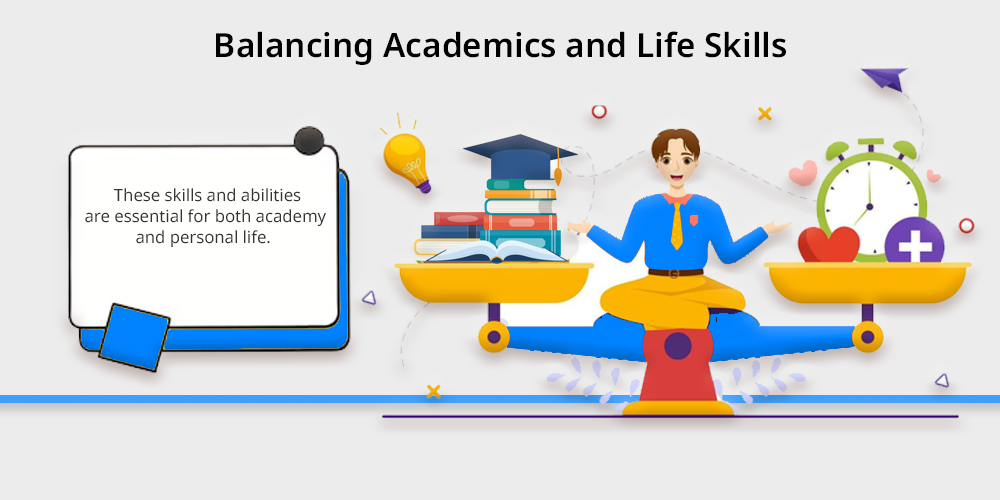
Developing critical thinking in problem solving helps students and navigating through challenges effectively and efficiently making them independent and wise enough to make informed choices contributing to the decision making abilities.
These skills and abilities are essential for both academy and personal life.
There are many teaching methodology is that can be incorporated in the module such as puzzles brain teasers and strategy games to sharpen their analytical thinking and reasoning skills where on the other hand in order to articulate their view points and analyse argument it is suggested for students to participate in debate and discussion on current events and even on hypothetical situations to build over there own independence thoughts.
For example incorporating a practical Life lesson in the module alongside the academics can help children be prepared for the real world where they can carry their skill forward to their adulthood.
Some of the opportunities and responsibilities that can be given to young children could be learning measurement, fractions and time management with the help of cooking where on the other hand they can learn household responsibilities with organising task, managing schedules and planning projects about prioritization and time management making them more accountable for their activities and everyday moves.
8. Socialization for Homeschooled Kids
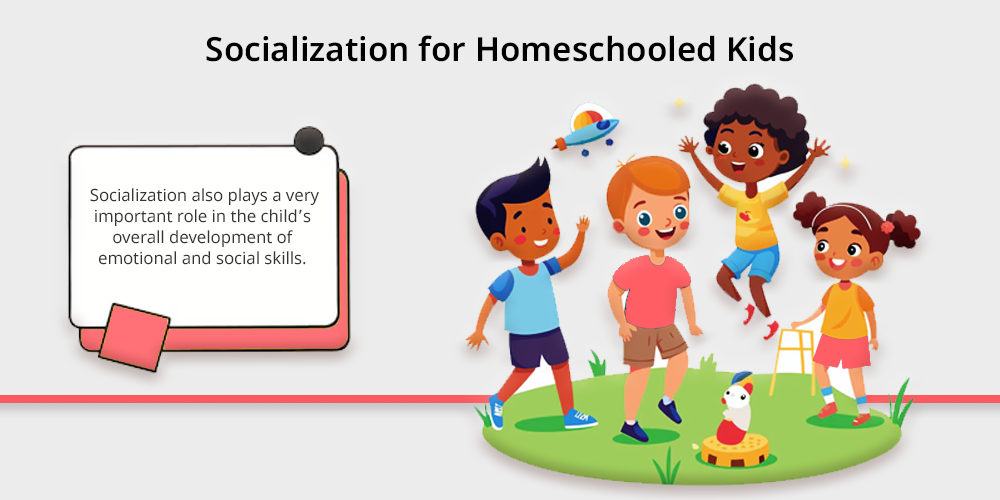
Socialization also plays a very important role in the child’s overall development of emotional and social skills.
Homeschooling offers an ample amount of opportunities for students to interact in a social environment and will connect in more meaningful ways and in a more personal manner.
Additionally, joining homeschooling communities—whether local groups or online forums—provides valuable support and networking opportunities for both children and parents.
When students interact in local communities they often organise trips and learning sessions together, these activities help students create a sense of belongingness and allow children to interact with people who can share their similar experiences with them.
As parents take a step towards combining the structure of social activities and casual play together homeschooling becomes easier and children involved in the process develop strong interpersonal skills and long lasting friendships.
9. Tracking Progress and Assessments
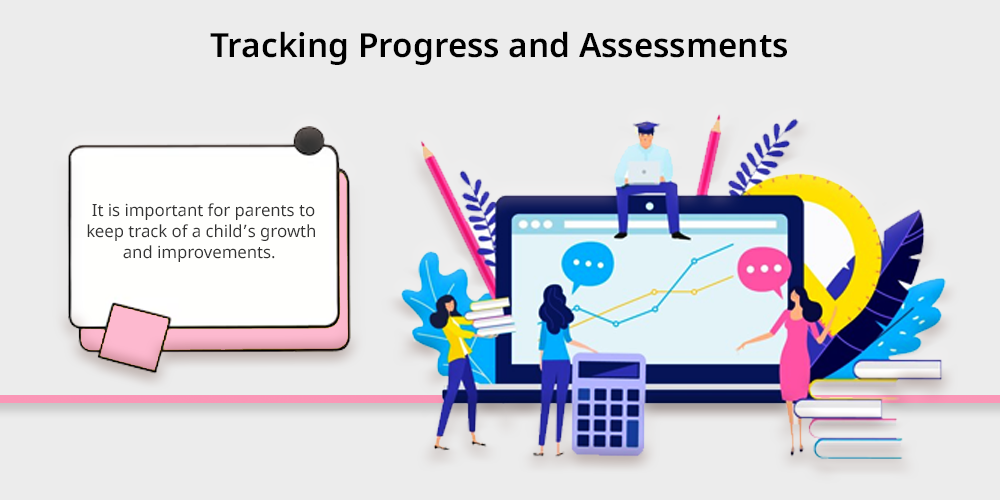
It is important for parents to keep track of a child’s growth and improvements.
A constructive feedback is something that can help a child in maintaining a mindset towards growth and work toward it with dedication and accomplish every task and celebrate it.
The constructive feedback that a student receives builds confidence in them, and discusses the areas of improvement with their parents where they can provide encouragement and actionable advice to them rather than criticizing them for anything that they have failed at.
This methodology promotes learning without discouragement.
In this journey they can even analyse the situation and keep note if a particular teaching method or a curriculum doesn’t seem to be working for students in a very effective way they can remain flexible and explore other alternative strategies to be implemented which then alliance with the child learning style and look for resources to use.
Home schooling is beautiful because of its features like adaptability and flexibility which allows parents to adjust plans in real time in accordance to the child’s needs which helps them grow, succeed and build an academic pillar for themselves to grow into well suited professionals.
10. Taking Care of Parental Well-Being
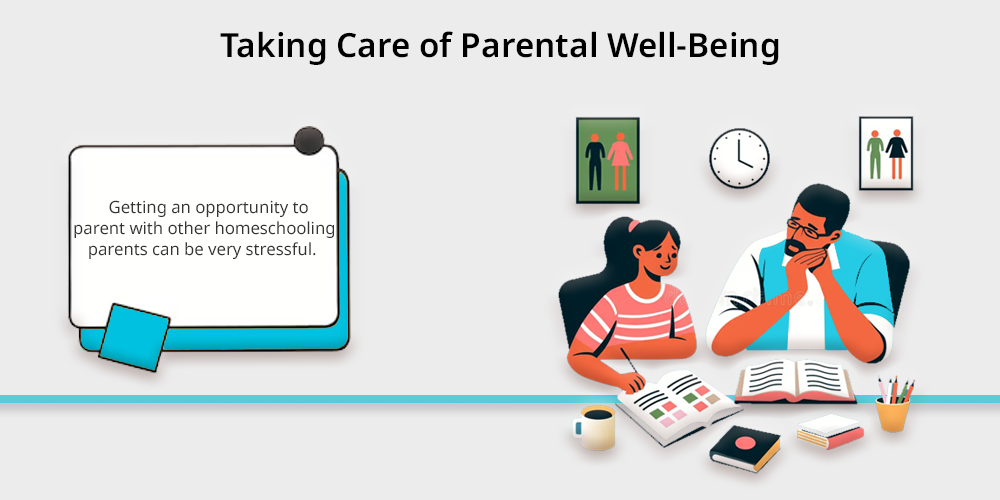
The Homeschool experience can be quite enjoyable but, as with many other activities, it is challenging especially for those who must manage other duties like jobs or smaller children in the house.
If you intend to prevent stress, it is prudent to go for self-care, avoid setting high standards for yourself, and ensure that you create a line of demarcation between work, home and everything else.
Students can Use their calendar to delegate tasks when possible, and reduce the number of repetitive endeavors during the day in order to lighten the load. They can even ask for help from their parents and other family members.
Furthermore, getting an opportunity to parent with other homeschooling parents can be very stressful.
Heating with other homeschooling parents unwinds the emotional pressure and offers tips when you hit rock bottom or when you need new ways of ensuring your child continues to learn and you do not get burned out.
Conclusion
Homeschooling is a very new concept for people in India currently.
It is very different from the traditional schooling methods. All together it is a journey of discovery for both parents and children.
By fostering a creative environment that supports and enriches the student’s journey helps the child’s growth academically and personally.
While being in an homeschooling set up it is important to manage your time and seek support from the experts who can share their valuable solutions and emotional re-assurance which will nurture and motivate a child’s expectation towards the learning journey.
The best mantra to make this journey of success is to stay patient, adaptable and focused in the learning journey together to incorporate fun in learning and cherish the joy moments together.

